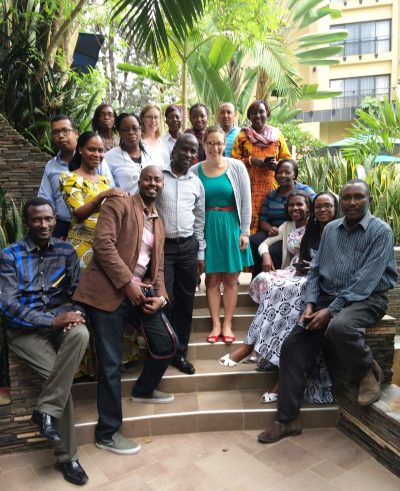A gender training workshop in Rwanda works to ensure equity for women and men in PMI’s IRS country programs.
The PMI Africa Indoor Residual Spraying Project (AIRS) conducted a three-day gender training in Kigali, Rwanda, March 23-25, 2015, to help participants understand ways they can promote gender equity while implementing a large-scale delivery project, such as indoor residual spraying (IRS).
The percentage of women working in IRS has traditionally been small. Traditional barriers, such as the misperception that women are not interested in or strong enough to do the work required in spray operations and that IRS work is “men’s work”, have limited women from participating in the income-generating work of IRS.
The U.S. Agency for International Development’s (USAID’s) Senior Gender Advisor Niyati Shah and PMI’s IRS Lead Allison Belemvire co-led the training which included gender focal persons from 10 countries with PMI-supported spray operations.
Gender-focused issues, such as a sexual harassment policy, the role of the National Malaria Control Program (NMCP) in recruiting and hiring women, a pregnancy policy, and countries’ legal framework to protect women, were discussed. The training focused on how each country, given their specific country-context, can improve equity for women and men across their projects.
The project’s partners at Rwanda’s NMCP and other government officials who implement the project in country also participated in the training. Dr. Corine Karema, the head of Malaria and Other Parasitic Diseases Department at Rwanda Biomedical Centre opened the training.
Each gender focal person left the training with a gender Strengths, Weakness, Opportunities and Threats (SWOT) analysis, a gender operational plan, and a presentation that they will present to their country office staff and implementing partners. The gender focal points will share the training with their country program staff to facilitate dialogue around gender issues and promote equal opportunity and respect for women in spray operations.

